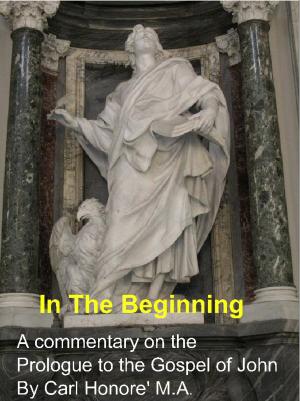A Discovrse of Fire and Salt
Discovering Many Secret Mysteries as well Philosophicall, as Theologicall (English Edition)
Nonfiction, Religion & Spirituality, Philosophy, History, Criticism, & Surveys, Ancient History, Theology| Author: | Blaise de Vigenère, Edward Stephens | ISBN: | 1230000287252 |
| Publisher: | Richard Cotes | Publication: | December 22, 2014 |
| Imprint: | Language: | English |
| Author: | Blaise de Vigenère, Edward Stephens |
| ISBN: | 1230000287252 |
| Publisher: | Richard Cotes |
| Publication: | December 22, 2014 |
| Imprint: | |
| Language: | English |
Example in this ebook
The first part
Pythagoras who of all Pagans was undoubtedly, by common consent and approbation, held to have made more profound search, and with less incertainty penetrated into the secrets as well of Divinity, as of Nature, having quaffed full draughts from the living source of Mosaicall Traditions, amid’st his darke sentences, where, according to the Letter, he touched one thing, and mystically understood and comprised another; (wherein he imitates the Ægyptians and Chaldæans, or rather, the Hebrewes, from whence all theirs proceeded) he here sets downe these two: Not to speake of God without Light; and to apply Salt in all his Sacrifices and Offerings; which he borrowed word for word from Moses, as we shall hereafter declare. For our intention is here to Treat of Fire and of Salt.
And that upon the 9. of Saint Marke, ver. 49. Every man shall be salted with Fire, and every Sacrifice shall be salted with Salt. Wherein foure things come to be specified, Man, and Sacrifice, Fire, and Salt; which yet are reduced to two, comprehending under them, the other two; Man and Sacrifice, Fire and Salt; in respect of the conformitie they beare each to other.
In the beginning God created Heaven and Earth; this said Moses on the entrance upon Genesis. Whereupon the Jew Aristobulus, and some Ethniques willing to shew that Pythagoras and Plato had read Moses bookes, and from thence drawne the greatest part of their most secret Philosophy, alledged that which Moses should have said, that the heaven and the earth were first created; Plato in his Timæus, after, Timæus Locrien said that God first assembled Fire and Earth, to build an universe thereof; (we will shew it more sensibly of Zohar in the Weik of a Candle lighted, for all consists of light, being the first of all Creatures.) These Philosophers presupposing that the World consisted (as indeed it doth) of the foure Elements, which are as well in heaven, and yet higher, as in the earth, and lower, but in a diverse manner.
The two highest, Aire and Fire, being comprised under the name of Heaven and of the Æthereall Region: for the word ἄιθηρ, comes from the verbe ἄιθω to shine, and to enflame, the two proprieties of these Elements. And under the word Earth, the two lower, Earth and Water, incorporated into one Globe. But although Moses set Heaven before Earth; (and observe here that in all Genesis he toucheth at nothing but things sensible, but not of intelligible things; which is a point apart) for concerning this, there is no good agreement between Jewes and Christians; Saint Chrysostome in his first Homily. Observe a little with what dignity the Divine Nature comes to shine in his manner of proceeding to the creation of things; For God contrary to Artists in building his Edifice, stretched out first the heavens round about, afterwards planted the earth below.
Hee wrought first at the head, and afterwards came to the foundation. But it is the Hebrewes custome, that when they speake most of a thing, they ordinarily put the last in order, which they pretend to touch first: And the same is here practised, where Heaven is alledged before Earth, which he comes to discry immediately after.
To be continue in this ebook
Example in this ebook
The first part
Pythagoras who of all Pagans was undoubtedly, by common consent and approbation, held to have made more profound search, and with less incertainty penetrated into the secrets as well of Divinity, as of Nature, having quaffed full draughts from the living source of Mosaicall Traditions, amid’st his darke sentences, where, according to the Letter, he touched one thing, and mystically understood and comprised another; (wherein he imitates the Ægyptians and Chaldæans, or rather, the Hebrewes, from whence all theirs proceeded) he here sets downe these two: Not to speake of God without Light; and to apply Salt in all his Sacrifices and Offerings; which he borrowed word for word from Moses, as we shall hereafter declare. For our intention is here to Treat of Fire and of Salt.
And that upon the 9. of Saint Marke, ver. 49. Every man shall be salted with Fire, and every Sacrifice shall be salted with Salt. Wherein foure things come to be specified, Man, and Sacrifice, Fire, and Salt; which yet are reduced to two, comprehending under them, the other two; Man and Sacrifice, Fire and Salt; in respect of the conformitie they beare each to other.
In the beginning God created Heaven and Earth; this said Moses on the entrance upon Genesis. Whereupon the Jew Aristobulus, and some Ethniques willing to shew that Pythagoras and Plato had read Moses bookes, and from thence drawne the greatest part of their most secret Philosophy, alledged that which Moses should have said, that the heaven and the earth were first created; Plato in his Timæus, after, Timæus Locrien said that God first assembled Fire and Earth, to build an universe thereof; (we will shew it more sensibly of Zohar in the Weik of a Candle lighted, for all consists of light, being the first of all Creatures.) These Philosophers presupposing that the World consisted (as indeed it doth) of the foure Elements, which are as well in heaven, and yet higher, as in the earth, and lower, but in a diverse manner.
The two highest, Aire and Fire, being comprised under the name of Heaven and of the Æthereall Region: for the word ἄιθηρ, comes from the verbe ἄιθω to shine, and to enflame, the two proprieties of these Elements. And under the word Earth, the two lower, Earth and Water, incorporated into one Globe. But although Moses set Heaven before Earth; (and observe here that in all Genesis he toucheth at nothing but things sensible, but not of intelligible things; which is a point apart) for concerning this, there is no good agreement between Jewes and Christians; Saint Chrysostome in his first Homily. Observe a little with what dignity the Divine Nature comes to shine in his manner of proceeding to the creation of things; For God contrary to Artists in building his Edifice, stretched out first the heavens round about, afterwards planted the earth below.
Hee wrought first at the head, and afterwards came to the foundation. But it is the Hebrewes custome, that when they speake most of a thing, they ordinarily put the last in order, which they pretend to touch first: And the same is here practised, where Heaven is alledged before Earth, which he comes to discry immediately after.
To be continue in this ebook















